by Phylis Huldarsdottir
Cast of Characters (Partial):
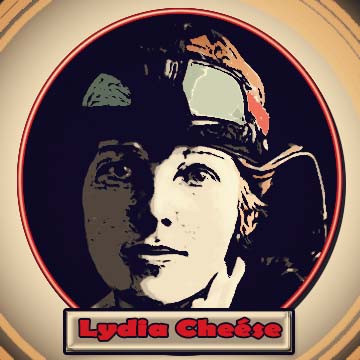 Captain Lydia Cheése (pronounced “Chase”), Airship Commander for Aerosud, a luxury liner airship company based out of São Paulo in the Empire of Brazil, who is searching for her father, Commodore Jack Cheése, an outlaw and antigovernmental rabble rouser.
Captain Lydia Cheése (pronounced “Chase”), Airship Commander for Aerosud, a luxury liner airship company based out of São Paulo in the Empire of Brazil, who is searching for her father, Commodore Jack Cheése, an outlaw and antigovernmental rabble rouser.
 Professor Doctor Jean-Pierre Serre-Pain, proprietor of Madame Ophelia’s Ophidiarium, a traveling snake show, who has abducted Lydia to get her to pilot an illegal unregistered airship to HOAR (the Horn Of Africa Republic) on a mission of mercy in exchange for helping her find her father.
Professor Doctor Jean-Pierre Serre-Pain, proprietor of Madame Ophelia’s Ophidiarium, a traveling snake show, who has abducted Lydia to get her to pilot an illegal unregistered airship to HOAR (the Horn Of Africa Republic) on a mission of mercy in exchange for helping her find her father.
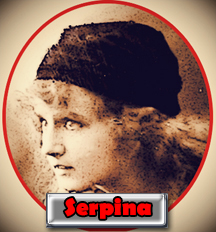
Serpina, a young girl who serves as Serre-Pain’s assistant and snake handler and who is also a psychic Vessel.
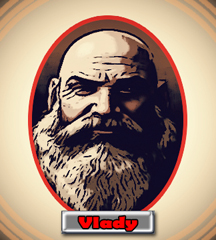
Vlady, an older bearlike man also in the employ of Madame Ophelia’s Ophidiarium and a traveling circus strongman Lydia recognizes from her past.
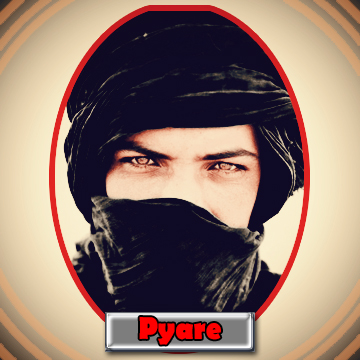
Pyare, a young man with dreams of being an airship pilot, and member of LBFDS (the League Bousculier Francaise Du Sud) helping Lydia and Serpina rendezvous with Serre-Pain and Vlady at an illegal airship.
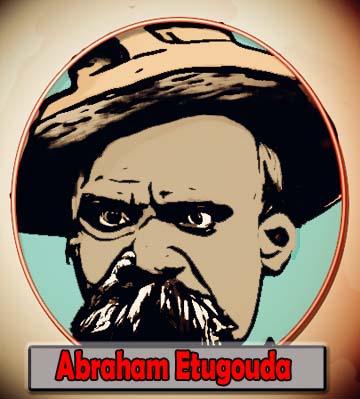 Emile Etugouda, poet, philosopher, world traveler, raconteur, and general all around know-it-all whose memory of an ancient epic poem helped Lydia, Serpina, and Pyare cross the Massif and on to their rendezvous in Autre Lyons.
Emile Etugouda, poet, philosopher, world traveler, raconteur, and general all around know-it-all whose memory of an ancient epic poem helped Lydia, Serpina, and Pyare cross the Massif and on to their rendezvous in Autre Lyons.

Chief Inspector Karla Kola, head of the IOTA squad charged with capturing Commodore Jack Cheése and Lydia’s nemesis and pursuer.
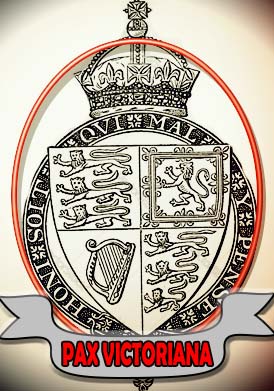 Pax Victoriana, a period of peace imposed by the Clockwork Commonwealth and its enforcement arm, The Admiralty, dating from the beginning of Queen Victoria’s reign to the present for a total of 180 years which includes the TSR (Temporal Shift Realignment) of 56 PV (1893 AD) after which Commonwealth calendars where recalibrated to reflect Her Royal Majesty’s peaceful rule (following the devastation of the first Pandem and its resurgence 30 years later as Pandem II).
Pax Victoriana, a period of peace imposed by the Clockwork Commonwealth and its enforcement arm, The Admiralty, dating from the beginning of Queen Victoria’s reign to the present for a total of 180 years which includes the TSR (Temporal Shift Realignment) of 56 PV (1893 AD) after which Commonwealth calendars where recalibrated to reflect Her Royal Majesty’s peaceful rule (following the devastation of the first Pandem and its resurgence 30 years later as Pandem II).
Chapter XVIII
Lydia had had enough. The old man, the poet Emile Etugouda was trying her patience. Not that she wasn’t thankful that he was helping them evade the clan militias by offering a shortcut to their destination, but he wouldn’t shut up. He talked about himself endlessly, the famous authors he knew, as well as his friends in high places. Lydia recognized some of the names he’d mentioned from the Emperor’s court in Rio Rio, but they were mostly from another era, her grandfather’s generation. She had never heard of the poets he mentioned, but that was no surprise. Even in her schooling, she had never been interested in the sentimental and fantastical, the frivolous. And for all she knew, what he was claiming could be a complete fiction.
The first instance that warned her of things to come was his forgetfulness. And since the trail they were following to get to Autre Lyons depended on his remembering of the epic poem, La Reccourci, a good memory was essential. They had traveled a couple of miles before Etugouda realized that they had taken a wrong turn because he had conflated “hair” with “lair of the Maiden” which was actually a detail from a completely different epic altogether. And from there they had veered off in another direction only to be confronted by a sheer wall of water at the top of the winding stream along whose banks they had trudged with increasing difficulty.
That was frustrating enough, but combined with his insistence on reading their auras and relating what the colors said about their personalities, it was grating on her nerves. Here they were desperate to reconnect with Professor Serre-Pain, and their guide, such as he was, wanted to play parlor games. He’d first fixed on Pyare as it was his suspicion he wished to allay, and because a male, make an ally.
“But enough about myself. How about you, my boy, what is your name? You seem to be the least out of place of your trio. Are you from these parts?”
“Pyare,” the young man spoke cautiously, “Pyare Aucarray. I grew up in the suburbs of Old Orleans. I worked in the fields in the valley, summers when I was going to school. We would often venture into the Massif to go hunting or swim in the streams.”
“Yes, yes, I sense that about you. Rugged orange, adventurous, with a hint of yellow to underscore your easygoing nature but also energetic red highlights. You are at peak spectrum. You have great potential and I would assume that you have many talents that are just waiting to be put to the test. Have you ever considered flying?”
Pyare looked askance as if he’d been asked a trick question. “How do you mean?”
“As an airship pilot, of course, you are just the caliber of man that would do well in the Navair trade.”
Pyare threw Lydia a triumphant look. “Exactly.”
Lydia suppressed her guffaw. “An airship pilot, imagine that,” she said at Serpina’s snigger. “Had we known, we could have flown to Autre Lyons instead of bumping into dead ends and following false nonexistent trails.”
Etugouda ignored her sarcasm and turned his attention to Serpina. “And what did you say your name was again?”
Serpina threw a glance at Lydia before answering. “I didn’t say, but it is Addy.”
“Yes, yes, Addy, there is something about you I can’t quite place.” The old poet ran a hand over his large mustache. “ There is a bit of the blue about you, a mysteriousness, a depth unfathomable, a spirituality. And a green that speaks of a garrulous nature. Also an underlying yellow, much like our young man here.” He smiled as Serpina’s cheeks pinked, and nodded, “As I suspected.”
When he looked at Lydia his eyebrows drew together and shaded his fierce discerning eyes. “But you, I cannot fathom. Your papers say your name is Odette Oday, if I heard correctly, and yet somehow that does not fit. And your credentials say you are a third class worker, but that is belied by your appearance and demeanor. As Conan at the Lion & Bear said, you are too shiny, and indeed you are. You radiate a dark red, almost purple, which mean you are not only determined but spontaneous, grounded but not easily cowed by convention. There are undulations of orange which I take to be of a cautious nature. As well some green around the edges that would indicate someone who is comfortable commanding others.”
Lydia returned the old poet’s gaze. There was a smugness about his pronouncements that galled her, something that she encountered mostly from men who were always in a hierarchal mode, like somehow they knew better or were better. Her boss and nemesis, Commodore Crenshaw, at Aerosud Headquarters, held a similar attitude toward her and the other female airship pilots. Airship commander was still a very much male dominated occupation. There was also something decidedly archaic about the old man, as if he belonged to another era. His clothing was a patchwork of styles, the tilted hat, the bulky scarf draped around his shoulders like a mantle of office, and the rough canvas jacket of many pockets, a faded blue. His trousers, patched at the knees, were cinched at the waist by a wide purple sash. The cuffs, turned up at the ankles, offered a glimpse of dark gnarled toes shod in sandals. A sturdy staff in one hand and the dark satchel slung over the other shoulder marked someone long experienced in travelling afoot.
“Your assessments of our personalities are entertaining and diverting, Monsieur Etugouda, but so far we seem to be taking one step forward and two steps back, and you have not brought us any closer to Autre Lyons. As for the palette of colors you ascribed to me, their combination would not be the most complimentary. Are you saying my aura is muddy?”
“Again, your wit distinguishes you from who you appear to be,” the old poet chortled, “And you are right to be skeptical. Your impatience is understandable but not entirely correct.” He pointed to the water cascading down the side of the gorge. “This waterfall is the Maiden’s hair of the poem. The next verse instructs us to push the hair aside to speak into her ear and ask for her protection and guidance.”
Lydia glanced up at the roaring falls and then at Etugouda as if to say, “and just how are we going to do that?”
Serpina had gone ahead. “I think I see a path up to the ledge above.” She was pointing up the sheer incline. “There, up there to the left, there seems to be a gap!” she insisted.
“A gap,” the poet smiled mischievously, “Something like an ear, perhaps? An orifice?”
Lydia followed where Serpina’s finger was pointing. “How are we going to get up there? We’re not mountain goats.”
Pyare proved that that he was true to his colors, energetic and adventuresome, by ducking through the underbrush to the base of the escarpment. The others, followed with Lydia bringing up the rear.
As if a natural feature of the landscape, a faintly discernable narrow track ran up the face of the cliff at an oblique angle. “Ah,” Etigouda exclaimed, “the nape of her neck will lead you to the lobe of her ear, as the poems says!”
Pyare had already started climbing cautiously, placing a tenuous hold on the craggy face of the sheer cliff and a careful foot on the narrow jutting edge. Once around a slight bend, the path appeared less treacherous although the roaring fall of water and the mist it raised was daunting enough. Wrapped in a cloak, Serpina’s lithe young frame seemed not to be troubled by the narrowness of the path. Etugouda glanced over his shoulder at Lydia before starting up. Lydia’s eyes traveled the path mapping its contours to the shaded terminus near the top of the falls. She looked at her feet as if willing them to begin their ascent. I’m an airship commander, she thought to herself, why am I spending so much time on the ground. She was out of her element. She needed to be in the air.
Chapter XIV
Lydia stood alone, off to one side of her companions, and gazed across the valley and at the air traffic in the sky above it. She was looking at the north south commercial air corridor up from Autre Lyons. Dirigibles, rigs and semi rigs, private silrigs as the Self-Inflatable Long Range Gliders were known, and even a few solid shell low altitude maneuverable dirigibles called flitters, usually in the service of the authorities, flecked the horizon like so many large dark birds. Lydia felt pangs of longing at the sight of them. She had not been at the helm of an airship in almost a month. A strong wind pushed the tall grass of the hillside where she was standing and tugged at the edges of her burnoose. South, she assumed was the direction of Autre Lyons.
The epic poem had been right she had to grudgingly admit. And she’d been prepared to give Etugouda his due but for the fact that he was too busy expounding on facets of the poem and how it reflected the geography far more ancient than the poem itself. And that this path had been used by humans and animals for tens of thousands of years to travel across the Massif to the valley below which was why water nymphs figure so prominently in the ancient local folklore because they were recognized as the source of life and regeneration. And on and on like a man in love with what he was saying, he kept up his chatter even in the roar of the waterfall as they passed under it and on up a narrow cleft to the crest of the ridge and the grassy rolling hills below. Or maybe their guide had known of the shortcut all along and the epic poem was merely a fanciful charade. That had yet to be determined.
At the forefront of Lydia’s thinking was how to make their way to the urban center and what to do once they got there. They were all in the same mess, it was no longer just about her flight from the scrutiny of IOTA to a safe refuge in Rio Rio and the court of the Empire of Brazil. She would honor her agreement with the snake doctor and pilot his clandestine airship to Djibouti and the capitol of ICER conspiracists. The other pressing concern was her hunger. That was proving to be a big distraction. And did nothing to improve her humor.
In the distance among a cluster of trees at the edge of the grass fields, the angled arrangement of earthen roof tiles was discernable. A dwelling would indicate that some kind of road or thoroughfare might be nearby. Serpina was already making her way down the slope in that direction and Lydia naturally fell in behind her. The grass slapped against her thighs and she stumbled over the loose uneven ground. She glanced back at Pyare whose strides soon overtook her and brought him up beside Serpina. Etugouda struggled with the descent, one hand holding his hat in place, his satchel slung over his shoulder bouncing on his hip, staff a third leg.
Lydia scramble up a little rise in the hillside at the top of which Pyare and Serpina had stopped. Below them was a double rut leading down. In the distance she heard faintly what sounded like a steam engine accompanied by the sound of machinery. Etugouda’s labored breathing made her turn and extend her hand to grasped his and pull him up. His moustache widened in a smile reflected in the twinkle of his eyes. “Not so muddy,” he rasped as he reached the top.
Already Serpina was following the dusty rut, moving determinedly, almost possessed, Pyare on her heels with a concerned frown. Lydia had little choice but to chase after them, leaving the old man to make his own way down. At one point beneath an arc of oaks, the road opened into a wide obviously well-traveled stretch. Serpina increased her pace to a steady jog, her mouth set in grim determination, eyes intent on the road ahead, a hound on a scent. She was oblivious to Etugouda’s entreaties to wait or Pyare’s alarmed appeals that she tell him why or what she was doing. At the sight of a bend in the road ahead, the young girl started a sprint, the flounce of her long skirt held high so as to not impede her speed.
Lydia picked up her pace to a run, matching her stride to Pyare’s. She rounded the bend at his shoulder. Ahead she could see Serpina racing toward an antique six legged steam beetle attached to a large wagon. Two figures were standing next to the multilegged contraption from the pre-Pandem II years, the exhaust stack sending up little gray puffs of smoke. Serpina extended her arms as she reached them.
And Lydia laughed, stopping in her tracks to catch her breath. She recognized the two men, one tall and lanky, and the other, bear-like, stocky and wide. It was Jean-Pierre Serre-Pain and Vlady. And as she followed Serpina up to them, she caught Vlady’s wide grin. She had so much to talk to him about, so many questions. If only he could talk. The Professor’s kind eyes smiled at her, at her relief and exhilaration.
She turned as the old poet, gasping and wheezing, came up behind her. The look on his face was one of complete astonishment, an expression she would have never expected from the old claven, as know-it-alls are often called. She heard Serre-Pain announce his own surprise, “Emile Etugouda?” To which their guide replied, “Serre-Pain, I should have known.”
Next Time: Flight Of The Long Bird
